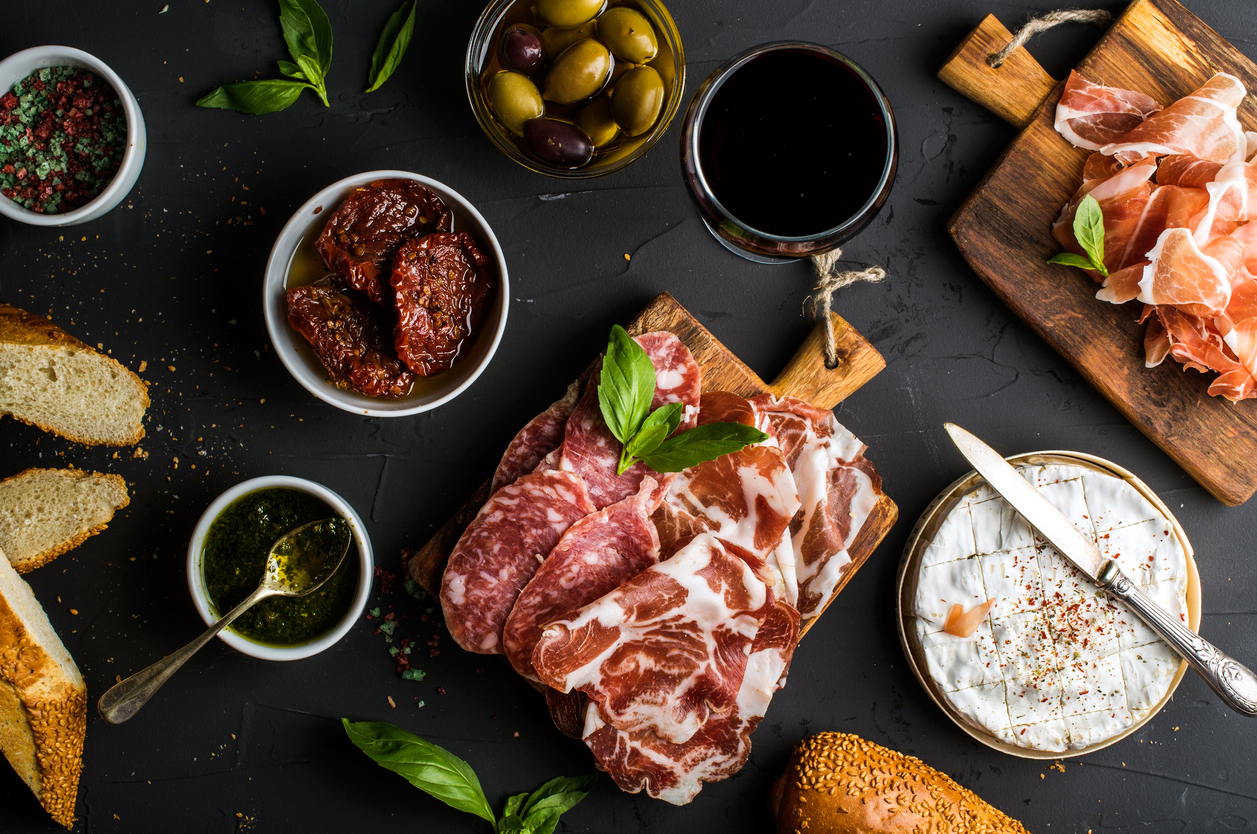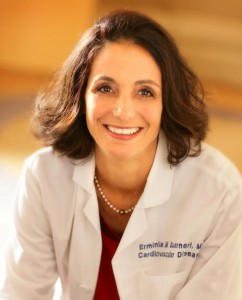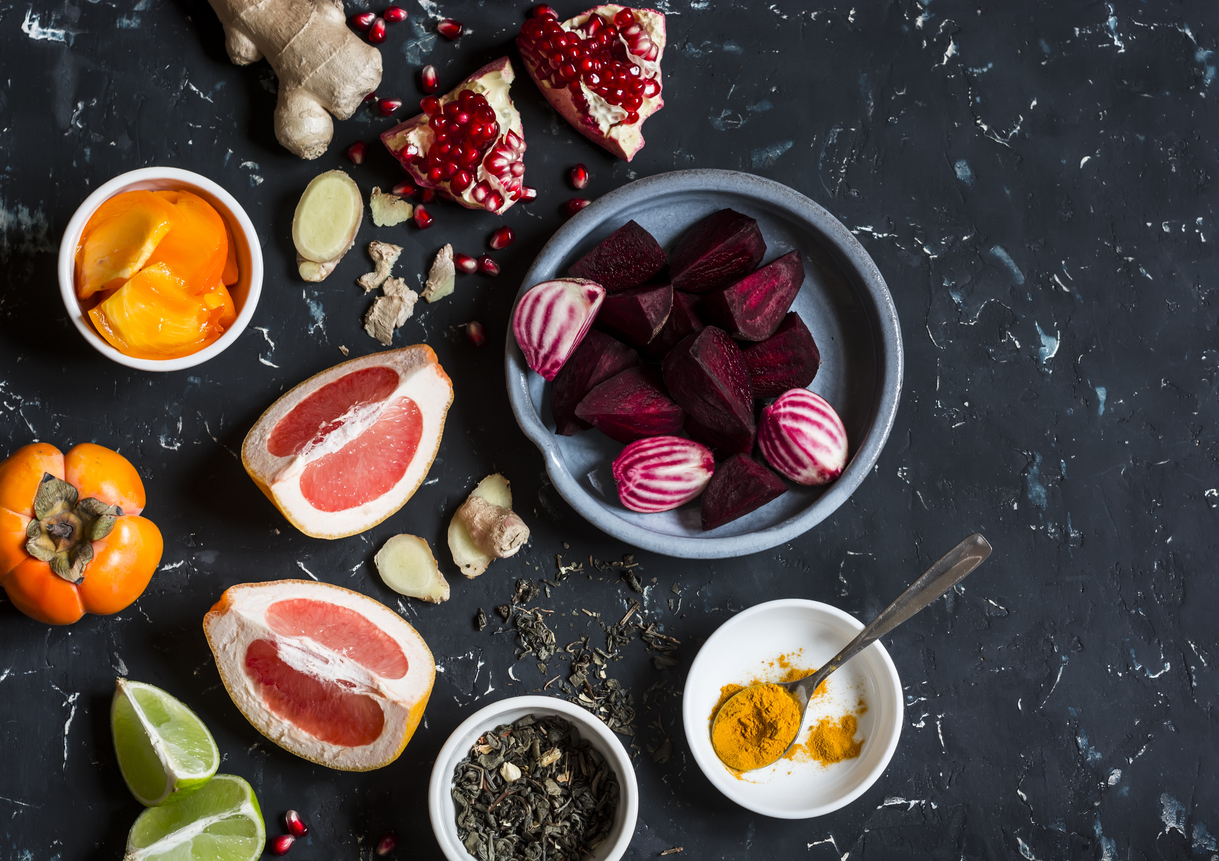What’s good for your heart, tends to be good for your brain and overall health.
And with February being Heart Health Month, we’ve decided to bring together three top doctors and ask them what top heart healthy foods they recommend (and eat) themselves.
Food is crucial. Research shows that up to 70% of heart disease cases are preventable with the right food choices.
So what should you be incorporating? Discover the heart healthy foods these doctors swear by…
Choose Heart-Healthy Foods High in Nutrient Density, Low in Toxins
I believe optimal vitality and prevention of disease is only possible with a healthy diet. To me, this means: foods high in nutrient density and low in toxins.
To accomplish this, the foods all need to be organically grown, free-range, pasture-raised or wild-caught and not stored in plastic or cans.
In addition, we need to eat foods with a lot of fiber as this is the primary way we can support our liver’s hard work getting toxins out of our body.
What this means for me personally is, essentially every day:
1. Beans, 2 servings (my wife, Lara’s, are excellent!)
2. Nuts or seeds, 2 servings
3. Blue- and other berries, 2 servings (blueberries are especially cardio- and neuroprotective)
4. Other fresh fruits, 2 servings
5. Fermented foods like yogurt, Kombucha or one of Lara’s shrub recipes, 2 servings
6. Vegetables—the more diverse and colorful the better! 5-7 servings.
7. To meet my protein needs (in addition to the beans, nuts and seeds). Twice a week I also eat 3-4 ounces of small, cold water, wild caught fish (rich in the EPA/DHA omega-3 fatty acids and low in mercury)
8. Full-fat cheese, 2-3 servings most days
9. Finally, a cup of coffee a day (a cappuccino made with soy milk, a spoonful of low sugar, dark chocolate and a sprinkling of cinnamon).
My junk foods are my special homemade nachos and coconut ice cream—but no more often than once a week.

Joseph Pizzorno, ND
Dr. Pizzorno founded Bastyr University – the first and largest fully accredited university of natural medicine in the US. He is the Editor-in-Chief of Integrative Medicine: A Clinician’s Journal, the leading peer-reviewed journal in integrative medicine and the author of The Encyclopedia for Natural Medicine and The Textbook of Natural Medicine. His latest book, The Toxin Solution, reveals how you can relieve toxic overload and restore your health in just 8 weeks.

Look To The Mediterranean Diet
The vast majority of research regarding cardiovascular disease involves the Mediterranean diet.
The Lyon Heart Study, the Hale Study, and more recently the Predimed studies have all demonstrated a significant reduction in cardiovascular events utilizing a true Mediterranean diet.
Of note, Predimed added good fat, in the form of olive oil and nuts, and demonstrated a 30 percent risk reduction in a primary prevention high-risk group of individuals!
The Ornish program researched a truly integrative model consisting of a low-fat vegetarian diet, yoga, meditation and group support. Those individuals adhering to the program had reversal of coronary artery disease and a 91 percent reduction in angina.
We know that cardiovascular disease is linked to inflammation, oxidative stress, and immune dysfunction.
High glycemic foods, sugar, and simple carbohydrates are leading causes of inflammation. And are not heart healthy foods…
Many individuals have inflammation as the result of food sensitivities such as dairy, gluten, corn and eggs, just to name a few. Inflammation is also caused by toxins such as heavy metals and infectious agents.
Each nutrition program should be personalized for the individual depending on their food sensitivities, ability to detox sulfates, and genes. In general, the following recommendations can be made to benefit most individuals:
1. Eat low glycemic foods.
Choose cruciferous and green leafy vegetables, and low-sugar fruits, such as apples, berries, peaches, pears, and plums. Avoid white foods such as white rice, breads, buns and potatoes. Most cereals and power bars are high in sugar.
2. Consume no more than 20 grams of sugar per day.
3. Choose fish high in omega 3, like salmon and sardines. Avoid mercury-containing fish like swordfish, tuna, sea bass, tilefish, etc.
4. Learn to add beans, lentils, and legumes into your diet. Sprout beans as a snack. Organic tofu, edamame, and tempeh are good protein sources.
5. Get extra protein with a smoothie of organic pea protein, unsweetened almond or coconut milk, fiber such as chia or flax, and organic berries.
6. Download the Dirty Dozen list from the Environmental Working Group website and purchase those fruits and vegetables organic.
7. Make filtered water your primary beverage and green tea your back up.
8. Have fresh fruit for dessert or bake an apple with cinnamon.
9. Use olive oil for salads and on cooked veggies. Use coconut or avocado oil for cooking.
10. Eat small amounts of healthy fats, like olives, nuts, and nut butter.
11. If you have high blood pressure or are sensitive to salt, keep your sodium to 1500mg per day.
 Mimi Guarneri, MD
Mimi Guarneri, MD
Dr. Guarneri is board certified in internal medicine, cardiology, nuclear medicine, and holistic medicine. In 2011 Dr. Guarneri won the Bravewell Leadership Award, which recognizes a physician leader who has made a significant contribution to the transformation of the U.S. health care system through the use of integrative medicine.
She is the author of The Heart Speaks and her work has been featured on NBC’s Today Show and PBS.
Don’t Forget About Anti-Inflammatories
1. Omega-3s (EPA, DHA)
Omega 3s reduce blood pressure, quell inflammation, reduce the tendency of platelets to stick together unnecessarily, reduce fibrinogen (a blood-clotting protein), reduce arrhythmia (irregular heartbeat), reduce blood fat, reduce atherosclerosis, coronary heart disease, and heart attack.
2. CoQ10
CoQ10 is a potent antioxidant, improves energy production, lowers LDL and total cholesterol, improves insulin sensitivity, lowers blood sugar, decreases the heart rate, improves oxygen delivery and may improve heart function.
We produce CoQ10 but our ability to do so decreases as we age and is also lower in people with hypertension, atherosclerosis, diabetes, and other diseases in which oxidation is a problem (e.g., osteoporosis), and in those taking statin drugs.
CoQ10 is not fast-acting; it takes about 4 weeks to reach its peak blood-pressure lowering effect, and 2 weeks after you stop taking it, blood pressure will return to prior elevated levels.
3. Curcumin
In-vitro, preclinical and clinical evidence conclusively confirm curcumin’s cardioprotective and lipid-lowering effects.
Inflammation plays a pivotal role in atherosclerosis and cardiovascular disease. Curcumin lowers C-reactive protein, a marker of inflammation and a strong predictor and risk factor for cardiovascular disease.
Supplementation with curcuminoids significantly reduces C-reactive protein levels in the bloodstream—an effect seen in research that used bioavailability-improved preparations of curcuminoids and had supplementation duration of ≥4 weeks, but not in the subgroups without these characteristics.
Anyone undergoing a coronary artery bypass should be supplemented with curcumin. In a recent human study, 121 patients undergoing coronary artery bypass surgery were randomly allocated to receive placebo or curcuminoids, 4 g/day beginning 3 days before the scheduled surgery and continued until 5 days after surgery.
The primary endpoint was incidence of a post-surgery in-hospital MI (heart attack). Incidence of in-hospital MI decreased from 30.0% in the placebo group to 13.1% in the curcuminoid group.

Mark C. Houston, MD
Dr. Houston is a leader in integrative cardiology and the Director of Hypertension Institute. He is triple boarded in hypertension as an American Society of Hypertension (ASH) specialist and Fellow of the American Society of Hypertension (FASH), Internal Medicine (ABIM) and Anti-aging medicine (ABAARM)
He is the co-author of What Your Doctor May Not Tell You About Hypertension, and author of What Your Doctor May Not Tell You About Heart Disease.
Are you already eating these heart healthy foods? Tell us which ones in the comments below!






Stephen r Edwards
February 25, 2017 , 7:16 amadd a little grass fed and finished beef daily